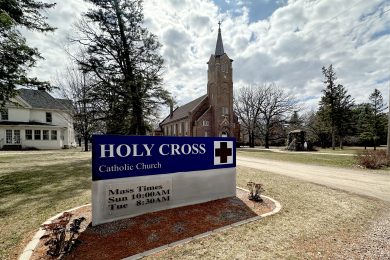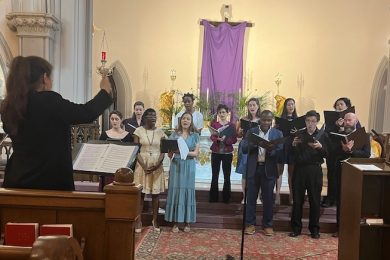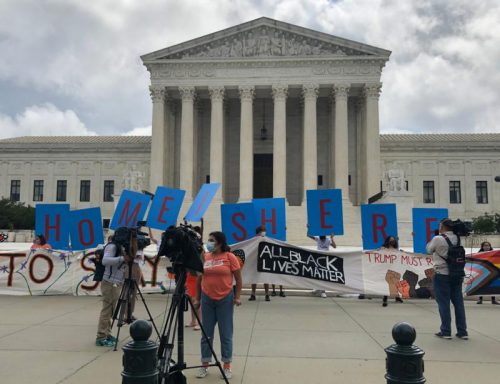WASHINGTON (CNS) — Miriam Uribe, who graduated from the University of San Francisco in 2017, planned to go to law school this fall.
But the possibility of a quick deportation had her terrified, delaying her decision.
Uribe is a beneficiary of the Deferred Action for Childhood Arrivals program, or DACA, which protects about 700,000 young people who qualify for the program from deportation and allows them to work, go to college, get health insurance and obtain a driver’s license.
DACA’s continuance had been in question as the U.S. Supreme Court considered whether President Donald Trump’s 2017 executive order ending the program was constitutional. President Barack Obama established DACA by executive order in 2012 to allowed young people brought into the country illegally as minors by their parents to stay in the United States.
On June 18, the court blocked in the short term, at least, Trump’s action and that gives Uribe some hope, she said at a June 18 online news conference sponsored by the Ignatian Solidarity Network.
“It was a good decision. I was not expecting it,” she said.
Uribe was especially happy with the concurring opinion of Justice Sonia Sotomayer, who took aim at Trump’s previous remarks about immigrants, especially Mexicans, whom, according to his critics, he characterized all as drug dealers and rapists in announcing his run for the presidency.

Sotomayer wrote, citing one of her previous opinions, “Taken together, ‘the words of the president’ help to ‘create the strong perception’ that the rescission decision was ‘contaminated by impermissible discriminatory animus.'”
For Filza Ali, who graduated this year from Loyola University in Chicago, the decision brought “utter relief” and kept her goal of attending medical school alive. “No matter what the future holds, DACA may have an expiration date, but our dreams don’t.”
“Generally speaking, it was a positive decision,” said Christopher Kerr, executive director of the Ignatian Solidarity Network, but he cautioned that it’s only a brief respite and not a solution, and it’s still not clear what action the Trump administration will take in response.
“Everyone deserves to be happy, and everyone deserves to be protected,” Mizraim Belman, a Georgetown University graduate, added. “There is a need to recognize that this is a big win,” but it’s not permanent. “Even then, the citizenship is not going to be the end-all and be-all of the fight.”
“For the first time in almost a year, I will be able to sleep soundly knowing I will not be in danger of deportation,” said Jose Arnulfo Cabrera , a DACA recipient who also is director of education and advocacy for migration at the network. But, citing the Black Lives Matter protests, he observed, “Citizenship does not mean equal justice for black and brown-skinned immigrants.”
“These are youngsters who came because their parents were trying to escape from very, very difficult situations in their home country.” said Jesuit Father Michael Sheeran, president of the Association of Jesuit Colleges and Universities. He read a statement asserting that Trump’s rescission of the program was done “in an arbitrary and capricious manner.”
Father Sheeran said his organization would now focus on more than 50 members of the U.S. House of Representatives and Senate with degrees from Jesuit institutions, telling them “to remember what you learned about human rights.”
He added, “The federal government needs to be required not to take the information they have from the DACA students so they can use it as a weapon” against the families.
The Development, Relief and Education for Alien Minors Act, or DREAM Act, which would grant temporary conditional residency, was first proposed in 2001 but has never passed. It has since been reintroduced several times, but has not been approved by majorities in both the House and Senate.
Sens. Dick Durbin, D-Illinois, and Lindsey Graham, R-South Carolina, introduced the latest version of the DREAM Act in 2019. It could cover as many as 2 million young people. Father Sheeran said he has supported that version because he considers it a “clean” bill without onerous added conditions. It would provide eight years of conditional permanent resident status, and also would allow DACA beneficiaries to receive in-state college tuition rates.




















